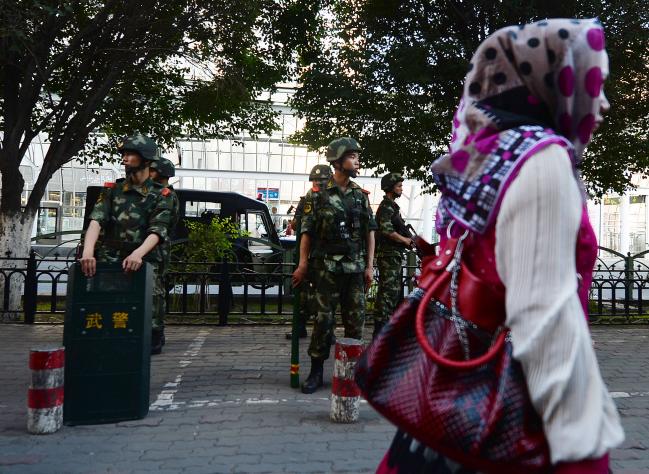(Bloomberg) -- The U.S. is preparing to roll out long-delayed sanctions to punish senior Chinese officials over human-rights abuses against Muslims in Xinjiang, two people familiar with the matter said, and Secretary of State Michael Pompeo vowed any measures would be “harsh.”
The sanctions, part of a toughening of the Trump administration’s stance toward Beijing, are likely to target Communist Party officials responsible for the internment and persecution of minorities in Xinjiang, according to the people. They declined to say who specifically would be cited or when the sanctions would be rolled out.
The administration is acting under the 2016 Global Magnitsky Human Rights Accountability Act, which give the U.S. broad authority to impose human-rights sanctions on foreign officials. The sanctions were delayed amid negotiations over a U.S.-China trade deal, but President Donald Trump signed a law last week requiring him to punish officials responsible for oppression of Uighurs and members of other minority groups.
“President Trump has been very clear when he signed this bill, the Uighur bill last week, that we were going to take this seriously, we were going to deal with it, we were going to put harsh restrictions in place,” Pompeo said Wednesday in an interview on Fox News. “We’re working on that.”
The two people cautioned that Trump would still need to give final sign-off for any sanctions to go ahead. In the past, he has delayed or frozen sanctions for fear they would jeopardize trade talks or sour his relationship with Chinese President Xi Jinping, Russian President Vladimir Putin or North Korea’s leader, Kim Jong Un.
U.S.-China ties have soured badly in the months since the “phase one” trade deal was signed, while the coronavirus pandemic made many of its elements moot. Trump administration officials have at the same time ramped up their criticism of the Communist Party over its human-rights abuses, including in Xinjiang, and the erosion of political freedoms in Hong Kong.
Who Are the Uighurs and Why Is China Locking Them Up?: QuickTake
In a further sign of the U.S.’s determination to call China out over abuses in Xinjiang, the administration issued a new business advisory Wednesday warning companies about the risks of running their supply chains through firms which “engage in human-rights abuses, including forced labor in Xinjiang and elsewhere in China.”
The U.S. Congress has long sought to restrict American companies’ reliance on Chinese partners that rely on forced labor in Xinjiang.
Earlier this week, the Associated Press reported that China had subjected hundreds of thousands Uighur women and other minorities to forced sterilizations, abortions and pregnancy checks to slash birth rates in Xinjiang.
What Are the New Laws China Is Pushing for Hong Kong?: QuickTake
At a briefing for reporters on Wednesday, Pompeo cited what he called “recent credible and deeply disturbing new reports” of forced sterilizations.
“This shocking news is sadly consistent with the CCP’s decades-long callous disregard for the sanctity of human rights,” Pompeo said, referring to the Chinese Communist Party.
©2020 Bloomberg L.P.

